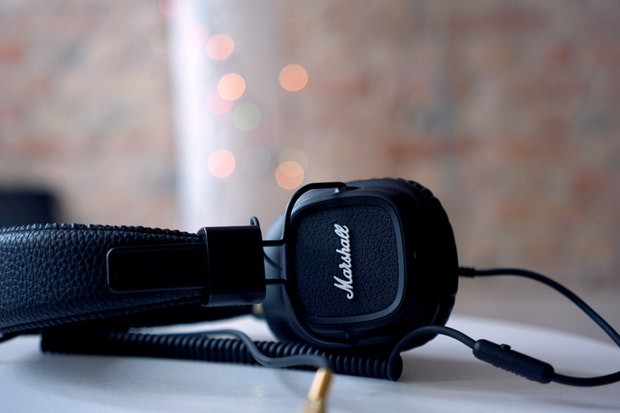I want to start off by stating that podcasting is not radio – it is a completely different medium. Podcasts are inspired by it, but they have the ability to be more than a single-airing piece, only available through radio waves.
Podcasts are the portable, immersive adventures that anyone can carry in their pockets with a cell phone and indulge in at any point in their day.
To help anyone create a fantastic podcast, here are five 'must-dos', in no particular order, that a podcast needs to be especially effective.
The One Where You Write for the Ear
Writing for the ear can seem simple. In fact, it is required to be simple. That’s right! Audio stories aren’t the medium for an academic style snooze-fest. That means no complicated, drawn out sentences and no piles of academic jargon.
Podcasts are like you’re speaking to someone, and people don’t speak like Shakespearean academics with a thesaurus. Your writing should flow easily and be easily understandable.
Take Criminal as an example. It’s a podcast that features stories about crime and wrongdoings. To bring these stories to life, the hosts use a conversational tone on top of a news story. Sentences are kept short and varied, and topics are simplified, so just about anyone can understand.
The One with That 'So Good' Ambient Noise
Ambient noise, or background noise, can make or break an audio story, but if it’s successfully implemented, it can make an entire piece compelling.
Ambient noise is the part of a podcast that can transport your audience into the story itself. It activates the imagination, and it makes listeners envision the story as if it was happening right in front of them. However, make sure your ambient noise matches the tone and mood of your story.
Here’s an example of a piece I made myself. This audio story features my dad as he tells the story of his escape from Laos across the Mekong River as a teenager during the communist takeover. I wanted the piece to sound like an intimate campfire story, so I brought in sounds of the night, a rushing river, and birds flying away to take my audience to that dark and terrifying night.
The One with the Right Format
Podcasts don’t have a universal format to follow. Each one chooses a style that best conveys the intended message. Some formats include a newscast, a talk radio style podcast, or a non-scripted conversation between two people.
These formats convey a message themselves regardless of the content. For example, a conversational style podcast conveys a sense of casualness and lightheartedness, while a newscast-type podcast conveys a sense of non-fiction and seriousness, so be careful when choosing your audio story format and style.
Shane and Friends is a good example of where a conversational style works best. The podcast is focused on celebrity gossip, vulgarity, and guests who share their own crazy stories, so the casualness from this style helps to heighten the comedy of the podcast, and it helps to make the hosts feel like your own friends.
The One with the Compelling Story
No one cares for a boring story. Stories that transport your audience into the story or make them feel empathy are the types of stories that people remember. They’re the stories that make listeners return for another episode.
Compelling stories make your podcast stand out in a market of other podcasts that attempt to gain listenership as well. Always aim for 'all killer and no filler'. Each episode should be a number one, and a good story is essential for each one.
StoryCorps offers countless compelling stories, and each one is told by the people who own the stories. People enter the public StoryCorps booths around the US and record their conversations.
Many of the stories are compelling because they’re told well, invoke emotion, are from everyday people, and are sometimes out of the ordinary. Take a listen to this StoryCorps episode about a mother’s relationship with the murderer of her son.
The One with the Interesting Characters
This one comes along with compelling stories because those stories usually involve interesting characters. Interesting means many things. It can mean extraordinary, complicated, or relatable.
However, at their core, interesting characters need to invoke thought and emotion. They absolutely shouldn’t be bland, and they need to bring something to the story itself. They are the part of the story that will make the podcast more compelling and worth the listen.
Here’s an example of another short podcast I made. I interviewed my own vocal coach, Sarah Brauer, about her musical background, and it’s not every day that someone is able to get to know a professional singer.
Singing takes years of training and practice, and to classically sing takes even more work. I thought Sarah was interesting because she was extraordinary and inspirational to myself, so I thought it was a good idea to share her story and talents.
Jackson Phonsopha studies journalism at the University of Oregon and this post has been republished with the author's permission.
Free daily newsletter
If you like our news and feature articles, you can sign up to receive our free daily (Mon-Fri) email newsletter (mobile friendly).
Related articles
- Tips to tailor pitches for written, audio and visual formats
- Standing out in a crowded market: what makes a top news podcast?
- 39 media podcasts that should be on every journalist's radar in 2023
- 10 ways news organisations are covering the anniversary of the Russia-Ukraine War
- 12 essential self-taught journalism skills










